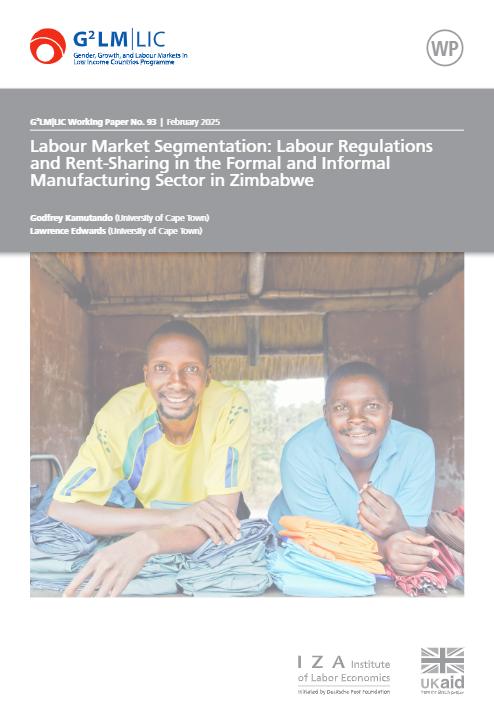This paper analyses labour market segmentation within and between the formal and informal manufacturing sector in an emerging economy, Zimbabwe, and studies the potential role of labour market policies and rent-sharing in driving these outcomes. The estimates exploit the panel dimension of a matched employer-employee dataset of Zimbabwean manufacturing firms collected between 2015 and 2016 that allows for the inclusion of firm and individual characteristics in identifying sources of segmentation. Evidence of low worker mobility between the formal and informal sector, and between contract and permanent jobs in the formal sector, suggesting the presence of segmented labour markets. Mincerian wage regressions corroborate this finding revealing high wage differentials between formal and informal workers that is more pronounced for lower wage workers, as well as wage gaps between permanent and contract workers within the formal sector. The complementarity between union membership and permanent employment status is found to be a key source of wage segmentation within the formal sector, with rent-sharing the channel driving this outcome. These findings underscore the multi-tiered nature of labour market segmentation in Zimbabwe and illustrate how the intersection of labour market regulations governing unionisation and permanent employment contracts raises the bargaining power of workers.

Labour Market Segmentation: Labour Regulations and Rent-Sharing in the Formal and Informal Manufacturing Sector in Zimbabwe
- Lawrence Edwards
- Godfrey Kamutando